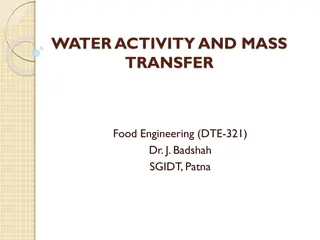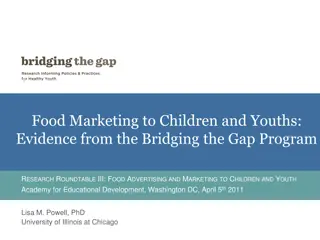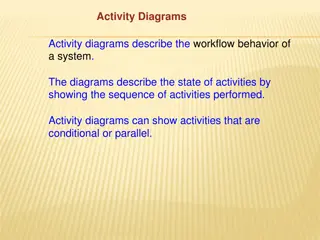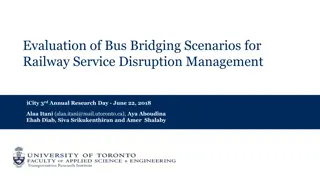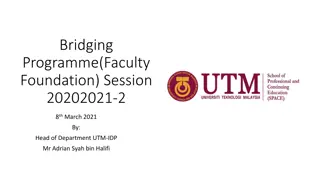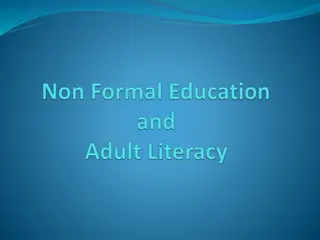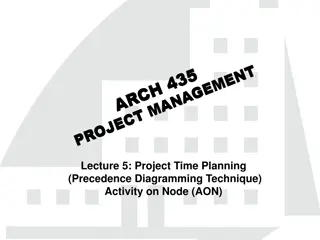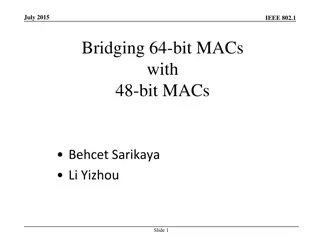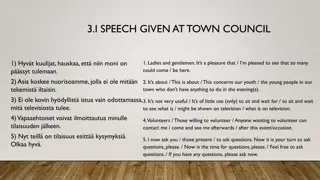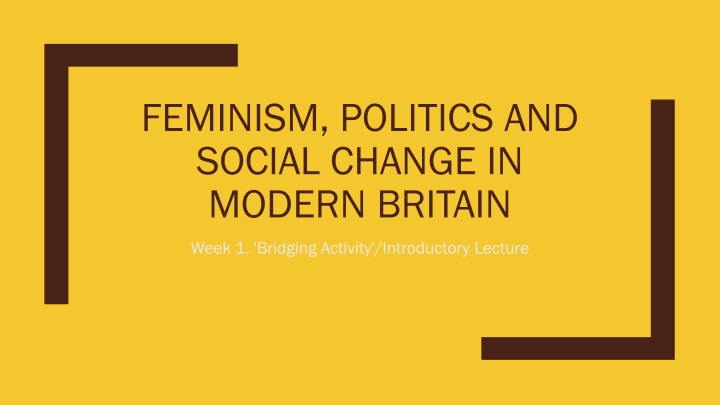
Exploring Feminism, Politics, and Social Change in Modern Britain
Delve into the complexities of feminism, politics, and social change in modern Britain through this introductory lecture on bridging activities. Discover various types of available online readings and additional resources, along with insights from team-taught sessions by esteemed historians Sarah Richardson and Laura Schwartz. Explore the rich history of women's participation in politics and societal transformations in the UK.
Uploaded on | 0 Views
Download Presentation

Please find below an Image/Link to download the presentation.
The content on the website is provided AS IS for your information and personal use only. It may not be sold, licensed, or shared on other websites without obtaining consent from the author. If you encounter any issues during the download, it is possible that the publisher has removed the file from their server.
You are allowed to download the files provided on this website for personal or commercial use, subject to the condition that they are used lawfully. All files are the property of their respective owners.
The content on the website is provided AS IS for your information and personal use only. It may not be sold, licensed, or shared on other websites without obtaining consent from the author.
E N D
Presentation Transcript
FEMINISM, POLITICS AND SOCIAL CHANGE IN MODERN BRITAIN Week 1. 'Bridging Activity'/Introductory Lecture
Types of reading available online: 1. All core reading for the module (and a selection of further reading) will be available online e.g. an e-book or an online journal article that you access in the usual way via the library catalogue. 2. In addition to this, there are some readings that have been scanned by the library and uploaded to this page here. These are labelled as "digitised" on the web page reading list. 3. the Modern Records Centre has also digitised range of primary sources specifically relating to this module. They are available here and are identified on the web page reading list as "MRC".
Other online resources: The Warwick Library subscribes to a large range of databases and digitised archives. It's worth having a look on the catalogue, but a few that will be particularly useful are: Archives of sexuality and gender; defining gender19th-century British newspapers; Gender, identity and social change; the bibliography of British and Irish history; mass observation; popular culture in Britain; 20th century digitised newspapers; women in the national archives; women war and society 1914-1918. I strongly recommend the brilliant Mapping Women's Suffrage resource that our own Professor Richardson produced. The list of open access online resources compiled by the Institute of Historical Research
This Module this year will be team taught: Group 1 Group 1 will be taught by Sarah nineteenth century Britain. She became interested in the role of women in politics when working on an electoral history of the West Riding. She found that in spite of the rhetoric which excluded women from public life, there were a series of powerful female electoral patrons managing constituency politics in the region. She has published a study on the many and varied ways which women could participate in politics before they received the parliamentary franchise and is currently working on a collective biography of the five daughters of Richard Cobden who were active in a number of political, cultural and literary spheres at the end of the nineteenth century. Sarah Richardson Richardson, who is a political historian of eighteenth and Groups Groups 2 and 3 2 and 3 will be taught by Laura century Britain. She started off focusing on the history of feminism, looking at its relationship to education (especially women's fight to enter the universities); secularism and religion (especially freethinking feminists who attacked Victorian Christianity as inherently patriarchal); and wider working-class struggle. Her most recent book was on domestic servants in the suffrage movement. She is now moving to look more closely at other kinds of women workers and how this might prompt us to think differently about narratives of the British working class. Laura Schwartz Schwartz, who is a historian of 19th and early 20th
Blended Teaching and Staying Safe Blended Teaching and Staying Safe This module is taught on rotation (eg one week online, the next week face to face) However, may be subject to change from week to week and/or over the course of the term. For example, in response to a local or national lockdown, an outbreak on campus, staff having to quarantine. Please check your email every morning in case a face-to-face class has been moved online for such a reason. Face-to-face seminars will be undertaken in well ventilated rooms with enough space for you to stay 2 m apart. Some seminars may be undertaken outside so wrap up warm! Masks must be worn at all times inside buildings and there will be cleaning equipment available in each classroom. If you experience any symptoms that might be Covid 19 and/or are informed that you have been in contact with someone who has tested positively, err on the safe side and do not come to campus. Tutors will be available in their office hours to help you catch up and there will often be online tasks that you can still participate in.
Students Who Are Students Who Are Shielding Shielding If you have a medical condition that requires you to effectively shield, then you can apply for permission from the academic registrar to study remotely on a permanent basis (n.b. this doesn't apply when you just need to miss a single week due to a one-off health problem). https://warwick.ac.uk/fac/arts/history/students/covid19andstrikeinformation/studentarrival




